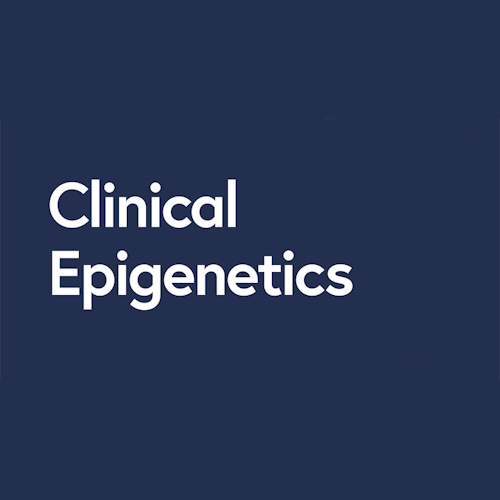Ageing is a natural phenomenon that has perplexed scientists for centuries. At the heart of ageing research lies DNA methylation, a critical biological process affecting gene expression without altering the DNA sequence. This process is a key player in the development and ageing of organisms, including humans. As we age, our DNA methylation patterns change, serving as a biological clock that can predict our chronological age.
However, not all individuals age at the same biological rate. Factors like lifestyle, environment, and genetics can cause variations in how our bodies age at the molecular level. This phenomenon, known as DNA methylation age acceleration (AgeAccel), has become a focal point for understanding how different factors contribute to ageing and age-related diseases, particularly in the heart.
The Heart of the Matter
Cardiovascular diseases remain a leading cause of morbidity and mortality worldwide. The risk of developing these conditions increases with age, but why do some individuals develop heart issues earlier than others? Research suggests that DNA methylation AgeAccel might hold the answer. This concept measures the discrepancy between biological age, as determined by DNA methylation patterns, and chronological age. An accelerated methylation age implies a faster ageing process, potentially leading to earlier onset of age-related diseases, including heart conditions.
This article delves into groundbreaking research exploring the intricate relationship between DNA methylation AgeAccel and cardiovascular health.
DNA Methylation and Cardiac Ageing
The research conducted adopted a comprehensive approach to understand the relationship between DNA methylation age acceleration and cardiac health. The study utilised data from a British birth cohort established in 1946, encompassing individuals who have been closely monitored throughout their lives.
Four different DNA methylation age estimators were employed: AgeHannum, AgeHorvath, PhenoAge, and GrimAge. These estimators are based on specific patterns of DNA methylation, which serve as markers of biological ageing. Each estimator offers a unique perspective on ageing, considering various biological factors.
Advanced electrocardiography (A-ECG) was used to assess cardiac age, providing a non-invasive method to evaluate the heart's condition and age. This technique allowed for the comparison between the biological age of the heart and the individuals' chronological age.
The team conducted robust statistical analyses to determine the correlation between DNA methylation age acceleration and cardiac health. This included evaluating the impact of cardiovascular risk factors like smoking, obesity, and hypertension on the relationship between DNA methylation age and cardiac age.
The study revealed significant findings linking DNA methylation age acceleration with cardiac health. The results were as follows:
Correlation Between Methylation Age and Cardiac Age: There was a notable correlation between accelerated DNA methylation age and increased cardiac age, suggesting that individuals with faster biological ageing at the DNA level also had older-looking hearts according to electrocardiography.
Impact of Cardiovascular Risk Factors: The research identified that certain cardiovascular risk factors, such as smoking and high blood pressure, were associated with an acceleration in DNA methylation age. This acceleration, in turn, contributed to the ageing of the heart.
Variation Among DNA Methylation Age Estimators: Different DNA methylation age estimators (AgeHannum, AgeHorvath, PhenoAge, and GrimAge) showed varied levels of association with cardiac age. This indicates that the mechanisms of ageing and heart health may be captured differently by each estimator.
Mediation Analysis: The study also performed a mediation analysis to understand how much of the effect of cardiovascular risk factors on cardiac age was mediated through DNA methylation age acceleration. It was found that a significant portion of the effect of these risk factors on cardiac age could be attributed to changes in DNA methylation patterns.
Implications
The study connects the rate of DNA ageing to heart ageing, illustrating how genetic factors interplay with lifestyle choices. This connection is crucial for several reasons:
Early Detection and Prevention: The study's findings suggest that DNA methylation patterns could serve as early biomarkers for cardiovascular risks. This means that by analysing these patterns, healthcare professionals might be able to identify individuals at higher risk for heart diseases earlier than currently possible.
Tailored Healthcare Strategies: Understanding individual DNA methylation patterns opens the door to personalised medicine. Treatments and preventive measures could be more effectively tailored to an individual’s genetic makeup, potentially improving outcomes and reducing the risk of heart diseases.
Lifestyle Impact: The research underlines the significant impact of lifestyle choices, like smoking and diet, on heart health, mediated through DNA methylation. This emphasises the importance of healthy living habits in maintaining heart health and potentially slowing down biological ageing.
Broader Understanding of Ageing: The study contributes to a deeper understanding of the ageing process itself. By linking DNA methylation to heart ageing, it provides insights into how our bodies age and how different factors contribute to this process.
Future Research and Development: This research lays the groundwork for future studies and potential development of new drugs or therapies targeting DNA methylation processes. Such advancements could revolutionise the way we approach ageing and cardiovascular diseases.
To wrap it up,
The study provides groundbreaking insights into the intricate relationship between DNA methylation age acceleration and heart health. It underscores the critical interplay of genetics and lifestyle in influencing heart ageing and the potential of DNA methylation patterns as early indicators for cardiovascular risks. This research opens new avenues in personalised medicine, emphasising the need for tailored healthcare strategies. It marks a significant step towards a deeper understanding of ageing and the development of targeted interventions to promote heart health, reminding us of the importance of healthy lifestyle choices in influencing our genetic destiny.
Credits
This study was conducted at University College London, with contributions from various other institutions. Acknowledgment is also extended to the journal Clinical Epigenetics for publishing this significant research. The invaluable contributions of all the researchers, institutions, and the publishing journal have been instrumental in advancing our understanding of DNA methylation and heart health.







